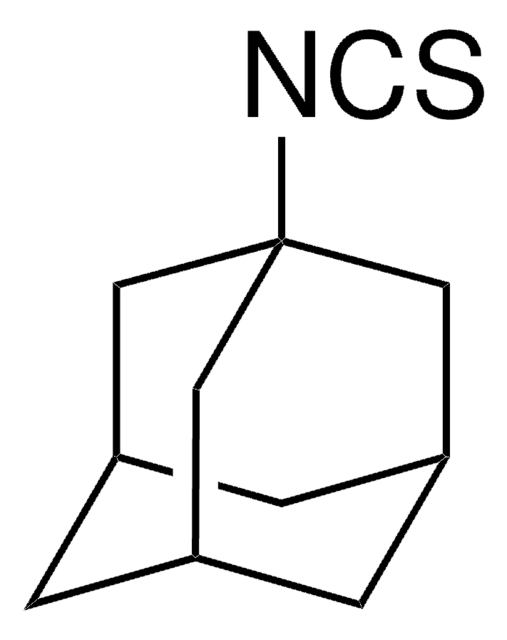190993
Poly(4-methyl-1-pentene)
medium molecular weight
Sign Into View Organizational & Contract Pricing
All Photos(2)
About This Item
Linear Formula:
(CH2CH[CH2CH(CH3)2])n
CAS Number:
MDL number:
UNSPSC Code:
12162002
PubChem Substance ID:
NACRES:
NA.23
Recommended Products
Quality Level
form
solid
melt index
26 g/10 min (260°C/5kg)
impact strength
3 kg.cm/cm2 (Izod, ASTM D 256)
dielectric constant
2.12, 100 MHz (ASTM D 150)
hardness
80 (Rockwell R, ASTM D 758)
refractive index
n20/D 1.463
mp
235 °C
transition temp
softening point 178 °C (Vicat, ASTM D 1525)
density
0.835 g/mL at 25 °C
SMILES string
CC(C)CC=C
InChI
1S/C6H12/c1-4-5-6(2)3/h4,6H,1,5H2,2-3H3
InChI key
WSSSPWUEQFSQQG-UHFFFAOYSA-N
Looking for similar products? Visit Product Comparison Guide
Related Categories
Application
Coating for paper food containers for microwave and conventional ovens. Release coatings for food and synthetic leather. Molded into medical labware. Film for decorative laminates and printed circuit boards.
Features and Benefits
Very low specific gravity, high transparency, resistant to oxidation and prone to stress cracking. Good electrical insulator.
Physical form
Crystalline, isotactic.
Storage Class Code
11 - Combustible Solids
WGK
WGK 3
Flash Point(F)
Not applicable
Flash Point(C)
Not applicable
Personal Protective Equipment
dust mask type N95 (US), Eyeshields, Gloves
Choose from one of the most recent versions:
Already Own This Product?
Find documentation for the products that you have recently purchased in the Document Library.
LaNetra M Clayton et al.
Journal of nanoscience and nanotechnology, 6(8), 2520-2524 (2006-10-14)
Poly(4-methyl-1-pentene), PMP, a high melting polymer composed of hydrogen and carbon, has the potential to become an alternative to polyethylene (PE) as shielding material against Galactic Cosmic Radiation (GCR). PMP exhibits higher thermal stability than PE and is transparent in
Sang-Chul Shin et al.
International journal of pharmaceutics, 235(1-2), 141-147 (2002-03-07)
Triprolidine-containing matrix was fabricated with poly(4-methyl-1-pentene) (TPX) polymer to control the release of the drug. Effect of penetration enhancer and stripping of skin on the permeation of triprolidine through the excised mouse skin was studied. Penetrating enhancers showed the increased
Ayano Chiba et al.
Physical review. E, Statistical, nonlinear, and soft matter physics, 85(2 Pt 1), 021807-021807 (2012-04-03)
High-pressure in situ x-ray diffraction and specific-volume measurements on isotactic poly(4-methyl-1-pentene) melt have uncovered abrupt changes in the pressure dependence of microscopic structure as well as that of macroscopic density. The first sharp diffraction peak of the polymer melt, which
Michael T Demko et al.
ACS nano, 6(8), 6890-6896 (2012-07-18)
Soft lithography methods are emerging as useful tools for high-resolution, three-dimensional patterning of polymers and nanoparticles. However, the low Young's modulus of the standard template material, poly(dimethylsiloxane) (PDMS), limits attainable resolution, fidelity, and alignment capability. While much research has been
Elimination of sevoflurane is reduced in plasma-tight compared to conventional membrane oxygenators.
C Prasser et al.
European journal of anaesthesiology, 25(2), 152-157 (2007-07-28)
It has been demonstrated that volatile anaesthetics have cardioprotective properties during open-heart procedures, especially when administered continuously. European Council Directive 93/42/EEC concerning medical devices bans the supplementary incorporation of anaesthetic vaporizers in the bypass circuit. Since the uptake of volatile
Our team of scientists has experience in all areas of research including Life Science, Material Science, Chemical Synthesis, Chromatography, Analytical and many others.
Contact Technical Service![Bicyclo[3.3.1]nonan-9-one ≥98%](/deepweb/assets/sigmaaldrich/product/structures/270/852/60661ded-13fb-4fc7-af36-a381880070a5/640/60661ded-13fb-4fc7-af36-a381880070a5.png)







